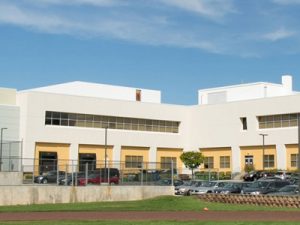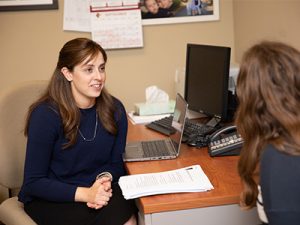Frisch History Department Hosts NYU Professor Robert Chazan
November 30, 2017
 The Yeshivat Frisch history department welcomed Professor Robert Chazan, S. H. and Helen R. Scheuer Professor of Hebrew and Judaic Studies in the Skirball Department of Hebrew and Judaic Studies at New York University, on November 29 for a thought-provoking and meaningful professional development session.Chazan, a leading historian of medieval Jewry with over 130 published books and articles, serves as co-director of NYU’s Programs in Education and Jewish Studies as well as of Re/Presenting the Jewish Past, a program designed for improving the teaching of Jewish history in Jewish day schools..
The Yeshivat Frisch history department welcomed Professor Robert Chazan, S. H. and Helen R. Scheuer Professor of Hebrew and Judaic Studies in the Skirball Department of Hebrew and Judaic Studies at New York University, on November 29 for a thought-provoking and meaningful professional development session.Chazan, a leading historian of medieval Jewry with over 130 published books and articles, serves as co-director of NYU’s Programs in Education and Jewish Studies as well as of Re/Presenting the Jewish Past, a program designed for improving the teaching of Jewish history in Jewish day schools..
At Frisch, Chazan led a discussion with faculty and administration that addressed best practices for integrating Jewish history within a broader, general history curriculum. The integration of general and Jewish history constitutes a core aspect of Frisch’s history department, and is one of the unique aspects within the school’s general studies program.
 Discussion topics included, but were not limited to: different historical theories about the driving force behind events in Jewish history; how to sensitively approach the notion of Jewish exceptionalism—and its detractors—from an academic perspective, within an Orthodox high school environment; the importance of imbuing a sense of dignity to the history of the Jewish people while cementing an understanding of just how relatively few in number the Jews have been from the very beginning of their history; and the challenges of balancing narrative flow with methodological concerns when teaching and writing about Jewish history.
Discussion topics included, but were not limited to: different historical theories about the driving force behind events in Jewish history; how to sensitively approach the notion of Jewish exceptionalism—and its detractors—from an academic perspective, within an Orthodox high school environment; the importance of imbuing a sense of dignity to the history of the Jewish people while cementing an understanding of just how relatively few in number the Jews have been from the very beginning of their history; and the challenges of balancing narrative flow with methodological concerns when teaching and writing about Jewish history.
In addition, Chazan expressed that he had heard many positive things about The Frisch School over the years. “The invitation to come to Frisch really represented for me an opportunity to see this place that I’ve heard so much about,” he said. “It is extraordinarily impressive. I’ve really been struck by what I’ve learned today visiting your school.”
“It was wonderful to learn from Dr. Chazan,” said Frisch History Department Co-Chair Eitan Kastner. “He helped us contextualize and frame the benefits and challenges of a combined Jewish and world history curriculum, and gave us a lot to think about.”






 The Yeshivat Frisch history department welcomed Professor Robert Chazan, S. H. and Helen R. Scheuer Professor of Hebrew and Judaic Studies in the Skirball Department of Hebrew and Judaic Studies at New York University, on November 29 for a thought-provoking and meaningful professional development session.Chazan, a leading historian of medieval Jewry with over 130 published books and articles, serves as co-director of NYU’s Programs in Education and Jewish Studies as well as of Re/Presenting the Jewish Past, a program designed for improving the teaching of Jewish history in Jewish day schools..
The Yeshivat Frisch history department welcomed Professor Robert Chazan, S. H. and Helen R. Scheuer Professor of Hebrew and Judaic Studies in the Skirball Department of Hebrew and Judaic Studies at New York University, on November 29 for a thought-provoking and meaningful professional development session.Chazan, a leading historian of medieval Jewry with over 130 published books and articles, serves as co-director of NYU’s Programs in Education and Jewish Studies as well as of Re/Presenting the Jewish Past, a program designed for improving the teaching of Jewish history in Jewish day schools.. Discussion topics included, but were not limited to: different historical theories about the driving force behind events in Jewish history; how to sensitively approach the notion of Jewish exceptionalism—and its detractors—from an academic perspective, within an Orthodox high school environment; the importance of imbuing a sense of dignity to the history of the Jewish people while cementing an understanding of just how relatively few in number the Jews have been from the very beginning of their history; and the challenges of balancing narrative flow with methodological concerns when teaching and writing about Jewish history.
Discussion topics included, but were not limited to: different historical theories about the driving force behind events in Jewish history; how to sensitively approach the notion of Jewish exceptionalism—and its detractors—from an academic perspective, within an Orthodox high school environment; the importance of imbuing a sense of dignity to the history of the Jewish people while cementing an understanding of just how relatively few in number the Jews have been from the very beginning of their history; and the challenges of balancing narrative flow with methodological concerns when teaching and writing about Jewish history.